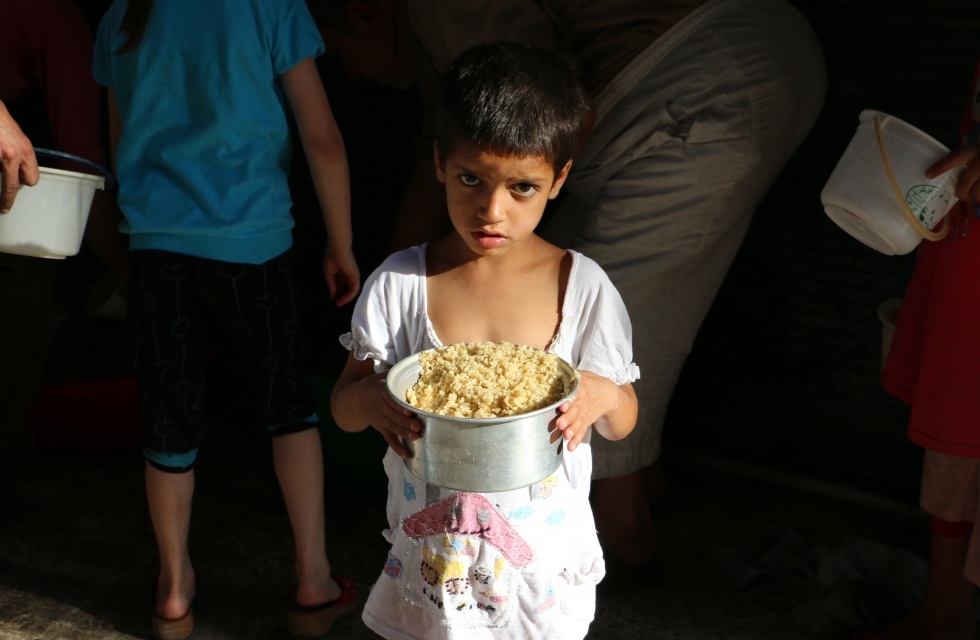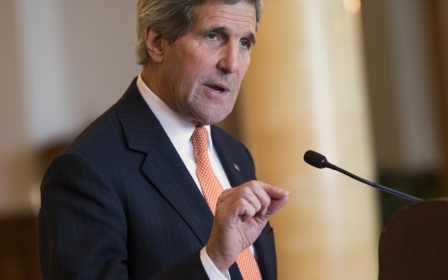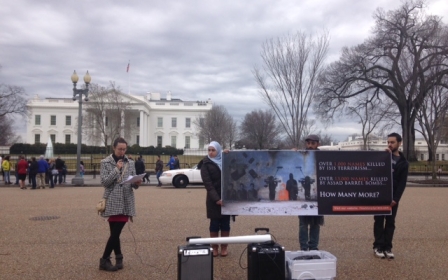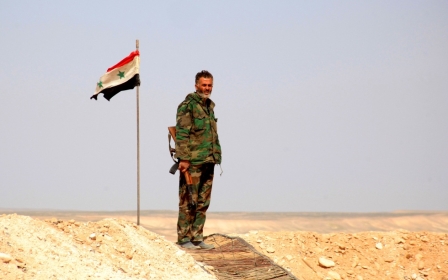Over 640,200 Syrians live under 'slow death' sieges: Report

More than 640,200 Syrians are living under long-term sieges, most of which are enforced by forces loyal to President Bashar al-Assad, a new report to be released in full next week has found.
The cited figure is more than three times the estimate made by the United Nations, which calculated that around 212,000 Syrians live in besieged areas that have no access to humanitarian aid.
The report, entitled "Slow Death" and written by the Syrian American Medical Society, identifies 38 communities as being besieged, which is more than the 11 areas that the UN recognises.
"We’re not talking about quote-unquote terrorists, we're talking about families who have nothing to do with armed groups," Zaher Sahloul, the president of the Syrian American Medical Society, told the Associated Press, which had obtained a copy of the report in advance.
According to the report, 560 people died in "areas besieged by the Syrian government," adding that pro-Assad forces are using siege tactics that have led to deaths by starvation, dehydration and lack of medical aid.
Damascus, however, had denied using siege tactics.
"If weapons and instruments of death are reaching those areas … how can they be said to be besieged?" Syria’s UN ambassador, Bashar Jaafari, wrote to the UN secretary-general in late February.
'Not acceptable to just sit around'
The report's findings along with pictures of the civilian victims – including those of emaciated children - were presented to UN diplomats on Thursday.
"We’re trying to find creative ways to address this, because it’s not acceptable to just sit around. People are dying," Valerie Szybala, the author of the report, was quoted as saying by AP, acknowledging the divide in the UN Security Council (UNSC) with regards to Syria.
Separately, the US ambassador to the UN said that Russia's vetoes against holding Syria's government accountable at the UNSC are "extremely disruptive" to restoring peace in the country, allowing Assad to do "almost whatever he wants".
"The things we think are indispensable, Russia is not prepared to do," Samantha Power told AP on Friday, accusing Moscow of allowing the civil war to continue by shielding Assad from pressure.
Russia and China have vetoed efforts to refer Syrian officials to the International Criminal Court (ICC).
"If the Caesar photos don't make you want to do an ICC referral, I don't know what does," Power said, in a reference to an archive of graphic photographs of tortured prisoners smuggled out of Syria by a former government crime scene photographer who used the pseudonym "Caesar."
However, the US ambassador did signal optimism with regards to Moscow, saying that she is seeing "more of an emphasis on a political solution now from Russia than we've seen before, and that's for good reason, because the situation of course is so much worse the longer it goes on."
Air raid on mosque
Meanwhile on the ground in Syria, at least 15 people were killed when Syrian air forces targeted a mosque during Friday prayers in the northern province of Idlib, according to a statement by the Syrian Revolution General Commission.
The commission also said that dozens were wounded in the attack on the village of Muntif.
The attack on the mosque comes one day after Assad had reportedly fired two of his top intelligence chiefs.
"General Rustom Ghazaleh, head of political intelligence, and General Rafiq Shehadeh, head of military intelligence, were fired at the beginning of the week by President Assad after a violent dispute between the two men," a high-ranking security source in Damascus told AFP on Friday.
Ghazaleh has been replaced by his former deputy, Nazih Hassoun, with Mohamed Mahalla taking over as military intelligence chief, the source added.
The two men were replaced after a violent argument over Ghazaleh's involvement in the southern front of the conflict in Syria, according to the source. Ghazaleh was briefly hospitalised after the incident two weeks ago.
IS 'trying to score military points'
Meanwhile, more than 70 pro-Assad forces have been killed in attacks by the Islamic State group in central Syria over the past 24 hours, Syrian Observatory for Human Rights said on Friday.
The attacks in Homs and Hama provinces targeted checkpoints and positions manned by government loyalists, the Observatory said.
"IS has faced setbacks recently in the provinces of Aleppo and Raqqa and in Hasakeh in confrontations with Kurds on the one hand and regime forces on the other, and are now trying to score military points, even limited ones, to offset their losses," Observatory director Rami Abdel Rahman told AFP.
Abdel Rahman also accused IS of carrying out an attack that killed 45 Syrian Kurds in Hasakeh province as they celebrated their new year.
New MEE newsletter: Jerusalem Dispatch
Sign up to get the latest insights and analysis on Israel-Palestine, alongside Turkey Unpacked and other MEE newsletters
Middle East Eye delivers independent and unrivalled coverage and analysis of the Middle East, North Africa and beyond. To learn more about republishing this content and the associated fees, please fill out this form. More about MEE can be found here.




